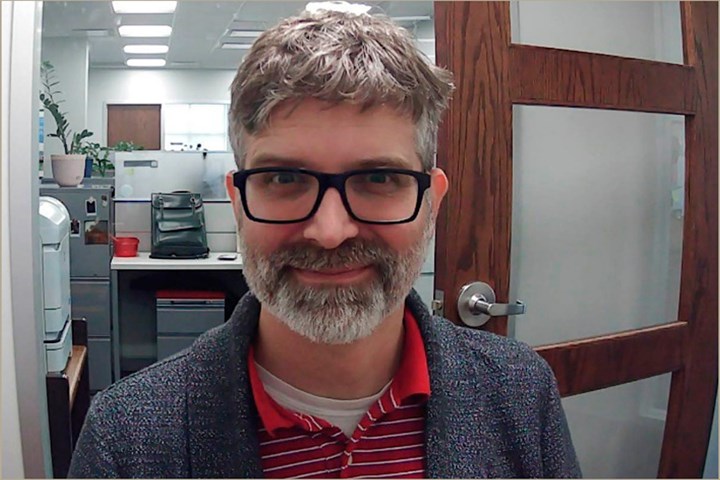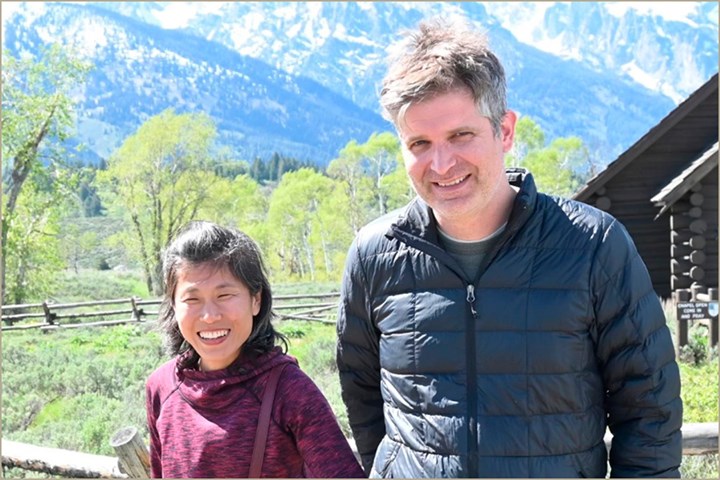Finding Career Continuity Retroactively in Business Media
Matthew Stonecash, Associate Editor for Plastics Technology, found that changing careers did not have to mean starting from scratch.
Employee Spotlight Profile
Matthew Stonecash, Associate Editor
Plastics Technology
Gardner Business Media Inc.
“Who told you that you could do that?”
The new boss was upset. The soft spoken, typically reserved chief of the biomedical engineering department had called me into his basement office to confront me about a phone call I’d made, shortly after starting a government job supporting healthcare technology. The accounting center in Austin processed payments for contracted maintenance on major medical equipment, I called to find out why an invoice from a service vendor had not yet been paid.
That funny little conversation worried me. I had violated a norm by picking up a phone and asking a question — did that say something about the culture? Where was I?
I briefly considered quitting, but I had just worked in a consulting company for a year and at long last finally retrieved my furniture from a storage unit in Chicago. I was ready to establish a home, to fully live somewhere and form new ties. And things got better at the hospital: I was promoted, it became my department, I gained more latitude for better or worse. Finding the next step became a long-term project.
After visiting some science-y graduate programs, shadowing high school teachers, and taking the LSAT, the breakthrough came when I tried out a wonderful class called “Introduction to Professional Writing” at the University of Cincinnati. Light bulb! Here was something useful, creative, collaborative, and maybe even would lead to an opportunity to make some use of my technical background. The next year I left my job and returned to school full time as a 41-year-old MA student.
I knew I was lucky to have the opportunity to take that mad step. Some people climb down in a hole every morning and dig cobalt ore out by hand until dusk, with no real choice in the matter. But when there is a choice, life is both too short and too long to spend working joylessly. And being a student again was immediately a joy.
One of my first assignments was to interview an alum of the program and write a short piece about how they used what we were learning. Knowing my background in engineering, the professor suggested I do my story on a successful graduate who had gone on to work in B2B journalism, writing for a magazine that covered developments in manufacturing. Light bulb #2! I must have been aware that such a thing existed, I’m sure there were trade magazines floating around at Baxter Healthcare, but it had never occurred to me as a possible career path.
I had a delightful and fascinating conversation with Stephanie, of course, and kept an eye out for opportunities at Gardner Business Media. Around two years later I moved into the office across the hall.

A decade after being rebuked for my temerity in making a phone call, I had a very different conversation with another new supervisor. On my first day, Jim Callari told me: “This is not a job for someone who needs to be told what to do every day.” Of course, Jim also assured me I would have support and guidance as needed, which I have. But most of the learning has come from doing and by observing and by reading others’ work.
Here again I’ve been uniquely fortunate to be surrounded, virtually by Jim, Tony, Lilli, and Matt and more literally by Sarah and the rest of the Cincinnati-based Gardner team. This is a group with a lot of expertise: in the practice of putting together a publication, in the myriad production practices of our readers and sources, and in all the important whos and organizations.
Drawing on that wealth, my work is always perfect despite my own relative inexperience in the trade magazine business. Haha, no, it’s not. Far from it. But I have room to try something, then try something a little better, and so on. That trust gives me confidence as I move into my second year, which looks to be one of significant changes as content production teams adapt to a world bristling with fun and exciting challenges.
Need more information?
Matthew Stonecash, Associate Editor
Plastics Technology
Gardner Business Media Inc.
LinkedIn
About the Author
Matthew Stonecash
Matthew Stonecash covers recycling and additive manufacturing as an associate editor for Plastics Technology. Matt is a graduate of the University of Dayton (2001) and the University of Cincinnati (2005, 2020) with a bachelor’s degree in mechanical engineering and master’s degrees in biomedical engineering and professional writing. Matt was introduced to plastics as an engineer at Baxter Healthcare supporting cell storage containers and separation equipment. After 4 years in medical devices, he transitioned to healthcare technology management within the VHA. Prior to joining Gardner in 2022, he wrote articles on a freelance basis for Eos, a science magazine published by the American Geophysical Union.

Matt lives in the Prospect Hill area of Cincinnati with partner Haixia “Joy” Niu and their 1-year-old dog, Nebula. The couple founded an independent bookshop in 2021, where Nebula has succeeded Matt as greeter and security guard.
RELATED CONTENT
-
Blog Post Templates to Help You Create Remarkable Content
By using blog templates and implementing blog posting essentials, you can improve your lead conversion rates.
-
Five Tools to Improve Your Webinar Audience Engagement
Learn how to boost engagement in your webinars to keep your audience tuned in and connected to your message. Abby Hull, director of digital products, reviews five tools you can use today in your broadcasts.
-
Communication That Seems Obvious Isn’t
Fix your sales and marketing alignment problems with this not-so-obvious answer: Better communication.


